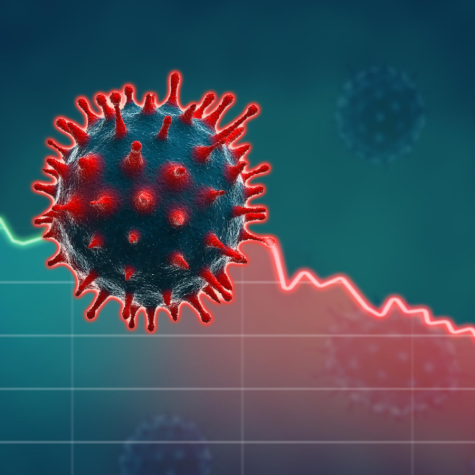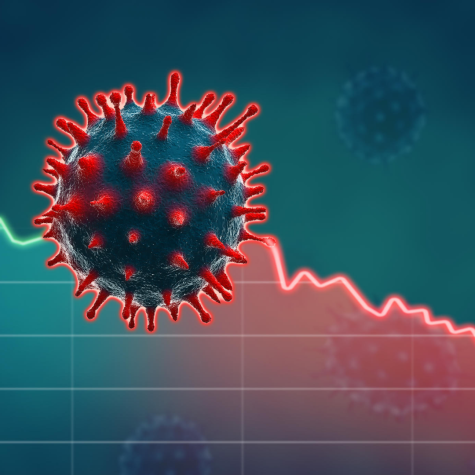Dealing With Grief During COVID-19: Advice From a Professional
April 9, 2020
Unprecedented times such as what is currently taking place in our world can lead to different reactions. Some people are anxious, some are just glad to have a break.
If you or a loved one are going through a loss caused by COVID-19, Lauren Patterson, assistant director of outreach & community engagement, said in an email that we must remember that grief is an individualized experience, and that there is no wrong or right way to grieve. Some common feelings caused by grief are shock/numbness, denial, sadness, shame, guilt and anxiety.
“It can be helpful to identify and express these emotions , take care of yourself, manage stress, and-or seek professional help as needed” said Patterson.
For those who suffer mental illnesses that get worse when cooped up inside all day, Patterson said that since each person’s experience with stressful situations is different, individuals may benefit from creating a self-care plan.
“Individuals may find it beneficial to create holistic plans that address a myriad of physical and emotional needs tailored to their situation” said Patterson.
One could include continuing medications as prescribed and seeking treatment via telehealth in their routine said Patterson.
Patterson also shared some tips from the CDC to help people with avoiding a mentally unwell state. The CDC’s website said that taking a break from the news is one way to avoid falling into a mentally unwell state. The website also suggests things like taking care of your physical health (eat well, exercise, etc.) as well as engaging in activities such as a hobby or an interest. The CDC list also recommends seeking social support.
For those who are extroverts, this time of isolation could be difficult.
“Social distancing does not have to mean social isolation” Patterson said.
She referenced a list by Active Minds of ways to connect with other people without coming into physical contact with them. A few of the suggestions include virtual trivia nights, social media challenges, group check-ins or meditations and many more. It is times like these when the world’s advancement with technology is appreciated.
A lot of students had to uproot their lives and move back home due to the college closing or losing jobs, and they had to change their day-to-day routine.
Patterson said that change, both good and bad, can be difficult.
“It’s important to remember that all feelings are valid and taking time to attend to those feelings may be necessary,” she said.
The Counseling Center website offers a list of quick resources for mental health as well as hotlines.
They also offer a page with more information on coping with grief and loss: https://students.georgiasouthern.edu/counseling/resources/tragedy-resources/
The counseling center is also working out phone call appointments as well as group telemental health therapy sessions.
If you or another student are having difficulties during this time, the Statesboro Counseling Center number is (912) 478-5541, and Armstrong’s is (912) 344-2529. Always remember that your feelings are valid and the Counseling Center is here to help.














